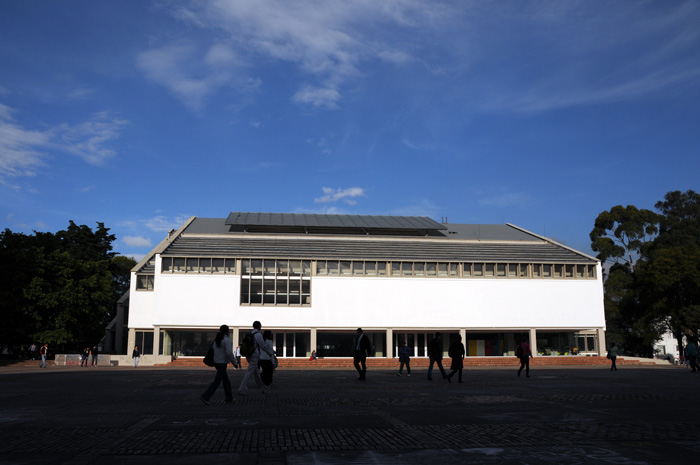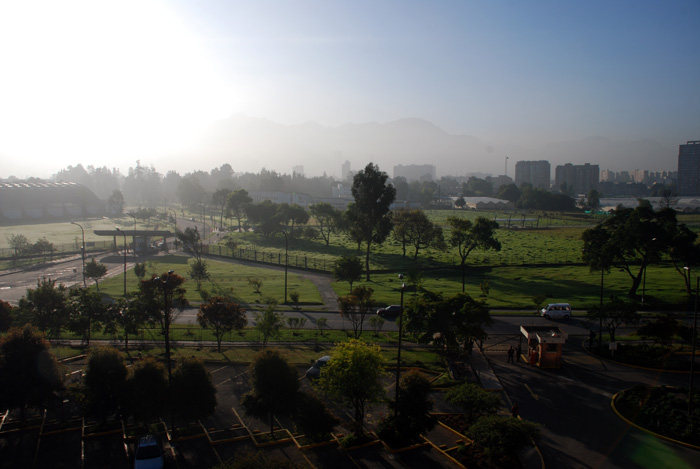After 8 months, public universities have received less than a fourth part of the money. At this moment, Universities do not have the necessarily resources to pay for their research public announcements and even the issuance of scholarships for post-grate students is at risk.
The resources for investment correspond to an amount that is given by the government to universities for financing projects. This money is given during the year, on a moth basis. Generally, in the first semester of the year, education institutions receive the total amount of these resources. However, at this moment, just 4 months to finish 2010, not even 50% of the amount has been delivered, which is seriously affecting universities.
The process to obtain this money is through an application each university gives to the Ministry of National Education. This Ministry gives the application to the Ministry of Finance and Public Credit for them to make the payment. However, despite of the big number of letters universities have sent asking for answers, they have just been ignored.
Despite of all the efforts institutions have made to cover the empty spaces of these resources, at this point, the cash department is not enough. Universities such as Universidad del Cauca had to ask for bank loans which represent interests it has to pay by itself
Universities without money
The president of the National University System (SUE for its acronym in Spanish), Danilo Vivas, said that universities have not been capable of fulfill their previous commitments such as investment projects, since resources are not enough despite the year is almost finish. "This is affecting the normal functioning of the universities. It generates nonconformity and unease in the university community since many of these resources are designated to create better conditions for the university activities, research, and social production," said Vivas. He also mentioned that the government, this time, is not fulfilling previous commitments made with the universities.
The case of Universidad of Cauca, where Vivas is the president, represents a sample of the extreme point universities have had to go due to the absence of money. This Institution, which has only received 25% of the investment resources, had to ask a 9. 500 million COP loan to the treasury to cover the needs they had. The interests, of course, have to be paid with resources of the university.
It is important to mention that Universities independently through SUE have sent different requests to the Ministries of Education and Finance for the payment of this money. On august 9th, SUE sent the last request, but it has not been answered and the Ministries keep in silence.
The President of Universidad Nacional de Colombia, Moisés Wasserman, requested this money corresponding to investment to be delivered immediately, since delays have already caused big damage to high education institutions. "It was agreed, 2 or 3 years ago, with the ministries that the investment budget was always going to be paid at the beginning of the year to make it efficient. This agreement, which was the result of a logical management, was not respected. This represents serious inconveniences for universities since it diminished its capacity to update its proceses, research and carry out investment projects to improve its infrastructure. Besides, it affects the payment of its libraries and magazines;" said professor Wasserman.
Universidad Nacional de Colombia has just received 14% of the investment resources for 2010, which represents an 86% accumulation of the money to be executed in for months. "We had to cut expenses to the minimum and use the cash department"s money, but we do not have that money anymore. So if the money is not paid, we are not going to be able to pay the providers related to investment projects," said Wasserman.
As a result, Universities demand the Ministry of Education and the Ministry of Finance to pay. "We need the agreements with previous governments to be respected. Universities and ministries signed agreements in public discussions. If these agreements are not respected, we can not function" said Luis Enrique Arango Jimenez, president of Universidad Tecnologica de Pereira, which has just received 12% of the investment money.
"If the resources for investment are not paid, universities development is not possible; they put us in serious trouble, since we have to ask for bank loans. These resources are supposed to come, but when" If we have the obligations now," asked Arango.
Under these circumstances, public universities demand an answer about the non-compliance and, above all, the payment of these recourses, since the situation without these recourses has reached its limits.
Sedes
 Correo Electrónico
Correo Electrónico
 DNINFOA - SIA
DNINFOA - SIA
 Bibliotecas
Bibliotecas
 Convocatorias
Convocatorias
 Identidad UNAL
Identidad UNAL




